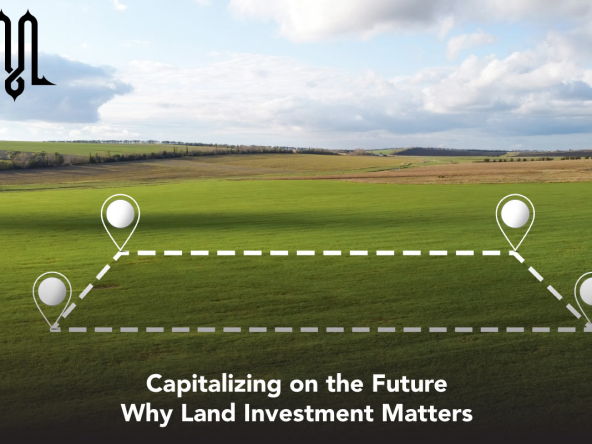In the realm of real estate investment, it becomes crucial to make a thoughtful choice between a freestanding house and an apartment when deciding on the type of property you plan to acquire.
To make the decision easier, here’s what you need to consider.
Crucial To Consider Certain Factors To Make An Informed Decision:
Rental Yield Vs Capital Growth
When contemplating the merits of capital growth versus rental yield, it is crucial to acknowledge their individual implications. Rental yield denotes the annual profit gained from an investment property as a percentage of its value, enabling a steady cash flow for potential living expenses. Nevertheless, it is important to exercise caution, as rental yields alone may not consistently serve as a reliable indicator of a desirable investment property. It is essential to note that properties with elevated rental yields may not necessarily witness capital growth and could carry increased risk, which can be influenced by factors like location, infrastructure, economic conditions, and other relevant considerations. The concept of capital growth revolves around the rise in value of a property over time, serving as a fundamental means for investors to amass wealth. Consequently, it assumes utmost significance when evaluating an investment property..
Location Of Property Plays Pivotal Role
Location is the primary driver in the success of an investment property, responsible for approximately 80% of its performance. An average high rise apartment structure situated in a sought-after location tends to outshine a luxurious apartments building located in a less favorable area. It is wise to target regions with a strong demand and limited property supply, as the dynamic fosters heightened competition for your property. Such market conditions can work to your advantage. Evolving Patterns in the Housing and Apartment Market
The significance of market conditions cannot be overstated when selecting an investment property, requiring a thorough analysis of the current state of the housing and apartment markets.
For instance, in an oversaturated market, purchasing an apartment could present an opportunity for price negotiation. However, it may pose difficulties in attracting tenants due to the surplus of available properties.
Financial Commitment to a House Investment
Investors who are committed to long-term prospects often find detached homes to be a favorable option. Often, these properties are purchased as part of a portfolio, with the intention of renovating or holding them until their value appreciates, enabling profitable sales in the future. However, it’s important to keep in mind that this investment strategy necessitates a considerable time horizon, as it can take more than a decade for the real estate market to witness significant capital appreciation.
Benefits:
- Appreciation In Value Over Time:
Typically, houses exhibit stronger long-term capital growth prospects in comparison to apartments, primarily due to the appreciation of land value. Nevertheless, it’s crucial to acknowledge that there are instances where this trend doesn’t hold true. For instance, a block of land in a remote area is unlikely to experience significant value appreciation compared to the square footage of a one-bedroom apartment located in the desirable location. Hence, considering the location becomes imperative while selecting an investment property.
- Flexibility to Make Renovations:
Houses provide a higher level of control over renovation projects compared to apartments, as there is no requirement for body corporate approval.This enables homeowners to explore options such as subdivision or extensions, provided they acquire the necessary permits from the local council. Additionally, renovations have the ability to increase the overall value of the house.
- Assurance Of Consistent Rental Revenue
In general, houses tend to attract tenants, particularly families and couples, who are known for their reliability and inclination to stay for extended durations. Renters who own pets typically show a preference for renting houses due to the availability of yard space. Research suggests that renters who have pets typically stay in their rented homes for longer durations compared to those without pets, likely influenced by the scarcity of pet-friendly rental housing options.
Drawbacks:
- Cost
Investing in a house usually entails a higher financial commitment compared to purchasing an apartment in the same area, mainly because the land component contributes to the overall cost.
- Yield and Growth
When comparing houses to apartments, it is common for houses to present lower rental yields but offer greater potential for capital growth. If your primary focus is on generating rental income to support cash flow, it is crucial to consider this aspect when deciding on an investment property.
- Maintenance Expenses
When you own a house, you are accountable for all maintenance and upkeep costs, as well as insurance premiums if you have obtained coverage. Moreover, prior to acquiring the property, you would need to allocate funds for building and pest inspections to identify any underlying problems.
Perks of Apartment investment
Exploring the potential benefits of investing in apartments is worthwhile. Notably, apartments generally offer a more cost-effective option compared to standalone homes, making them an attractive choice for new investors or individuals seeking to establish a well-distributed real estate portfolio in a particular area. Due to their concentration in bustling metropolitan regions, apartments often emphasize maintaining a consistent rental yield rather than exclusively striving for significant capital gains over the long term. Considering their presence in densely populated urban areas, apartments tend to prioritize the stability of rental income rather than solely pursuing substantial capital gains growth.
Let’s Talk About The Benefits:
- Investment Affordability
One of the notable advantages of apartments is their affordability compared to houses, which positions them as a favorable choice for investors entering the market. Furthermore, if your objective is to acquire property in proximity to urban centers, apartments offer a more affordable alternative compared to houses within the same suburb.
- Cost Sharing in Apartments
The potential ease of management is a significant advantage of apartments compared to houses. Apartments, distribute maintenance, insurance, and upkeep costs among all owners. The maintenance of common areas in apartment properties are handled by a body corporate, which collects fees from the owners.
- Simplified Management
Managing apartments can be relatively easier compared to houses due to certain factors. Unlike houses, apartments typically have no land, resulting in reduced maintenance tasks. Tedious chores such as mowing lawns become obsolete. Additionally, as apartments are usually smaller in size, cleaning takes less time, creating a win-win situation.
Few Drawbacks to Keep in Mind:
- Influence on Profitability
Apartments typically possess lower land value, thereby presenting a decreased potential for capital growth when compared to houses. Consequently, the profitability upon selling an apartment over a given period may not be as substantial as that of a house. It is important to note that numerous other factors, including property market trends, can influence this dynamic.
- Varied Body Corporate Fees
The body corporate fees associated with apartments can vary considerably. In certain instances, these fees can be relatively high. Newer apartment buildings that boast extensive amenities like pools, gyms, and rooftop entertaining spaces generally have higher body corporate fees to maintain and upkeep these shared areas. Conversely, older apartment buildings without such amenities or even an elevator typically feature lower body corporate fees. This distinction is crucial to bear in mind when assessing investment options.
- Regulations on Property Modifications
Apartment living entails adhering to the guidelines set by the body corporate, which typically involve seeking approval for significant property renovations. Unlike houses, apartments do not provide the flexibility to add extensions or undertake extensive alterations due to the absence of land.
- Effects of Growing Apartment Availability
The constant influx of newly constructed apartments results in an increased supply within the market. In areas where there is an oversupply of apartments, several factors can come into play. These factors may include lower rental yield, diminished capital growth, and decreased demand from potential tenants due to a wider range of available apartment options.





